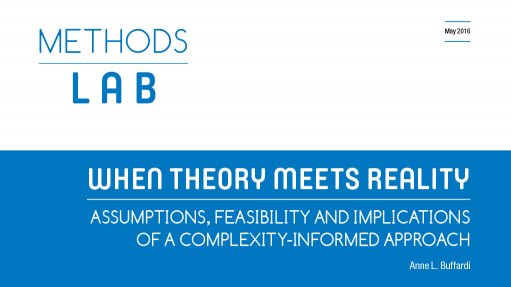
Complexity thinking is not new. Used in this paper to describe the broad range of literature and approaches on applying complexity theory to development programmes, complexity thinking goes back as far as the early 20th century. But discourse on complexity in the development field has burgeoned in recent years. And increased attention paid to complexity risks misunderstanding and misapplication of the term.
This paper explores options for development managers once they've identified some complex elements of their work. It provides a brief overview of the complexity discourse in international development and key features of complex programmes. It then presents recommendations from complexity scholars and identifies underlying assumptions and challenges based on examples drawn from current programmes. Finally, the paper poses guiding questions to help assess the fit and the feasibility for a programme of adopting these recommendations, and what practical steps and processes can help facilitate their integration.
It is aimed at practitioners designing, managing and evaluating large programmes with complex elements.
Paper by the Overseas Development Institute